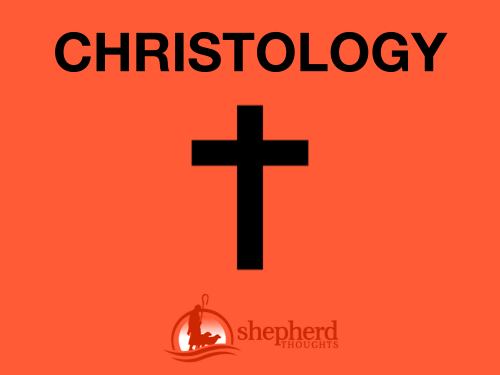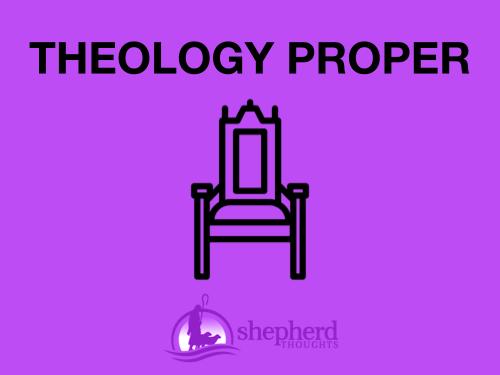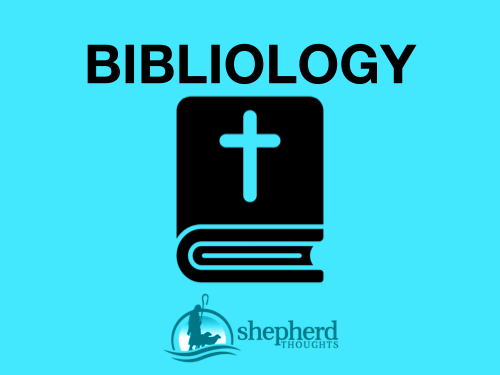Ordination Questions for Bibliology (Bible)
These questions have been compiled from 10 ordinations within Baptist Church in West Michigan. I trust these will help you prepare for ordination and appreciate the Truth of God and His Word!
Ordination #1
A. Inspiration
1. Define “inspiration”
2. Explain 2 Timothy 3:16-17
3. How do we know that the O.T. is inspired?
4. How do we know that the N.T. is inspired?
5. Is God giving revelation today? Biblical proof?
6. Is every statement in the Bible true?
7. Is the Bible totally consistent with itself? (Explain Romans 3:10 and Hebrews 11:6) Why are there two different accounts of the thieves on the crosses? How do you handle the apparent inconsistencies?
8. Can you give a passage that describes both general and special revelation?
9. Were the writers inspired, or were their writings inspired? Biblical proof?
10. Explain 2 Peter 1:19-21
11. Is it possible to have revelation without inspiration? Biblical evidences?
B. Canonicity
1. Give Biblical evidence for the canonicity of the 39 books of the O.T.
2. Give Biblical support for N.T. canonicity.
3. Explain Colossians 4:15-16 and why we no longer have the letter to the Laodiceans.
4. Of what value are the apocrypha to us?
5. What guidelines would be used to determine the canonicity of a particular book?
6. What external evidences are there that the Bible has demonstrated its reliability?
C. Interpretation
1. What rules would you use to interpret any particular passage?
2. What is dispensation?
3. How do you determine the balance between what seem to be conflicting doctrines (responsibility, sovereignty, Satan’s power, God’s authority)?
4. Explain 1 John 2:27.
5. What role does the Holy Spirit play in Bible study?
D. Practical Issues
1. Since we do not have any original manuscripts, how can you trust the bible in your hand?
2. How would you explain the preservation of the Word to a new believer?
3. How would you explain to a skeptic the uniqueness of the Bible as opposed to the Koran or other sacred writings?
4. Do you have a personal program for systematic Bible reading and study?
5. What study Bible would you recommend to a new convert?
6. What Bible translations do you encourage, what do you discourage, and specifically why?
7. Can you prove the Mosaic authorship of the Torah?
Ordination # 2
1. Please explain your view on the Triune God and scripture that supports your view?
2. How would you respond to a student who questions if the bible is reliable?
3. Please define inspiration and illumination. Explain their contrast. (What time does inspiration and illustration take place?)
4. Define revelation and is there a time when revelation has stopped.
5. Describe the process of inspiration. Scripture? How did scripture come about?
6. How did God use the authors to write scripture?
7. What is the connection between illumination and the influence of the church in understanding the Word of God?
8. Do you expect your theology to be the same today verse 10 years from now.
9. Do you agree that the bible is inerrant? Do you believe it? Define inerrancy.
10. Clarify the general revelation is found through the history of the world.
11. Please clarify the difference between general revelation and special revelation.
12. Can someone be saved through general revelation alone?
13. What ways can you confirm that the scriptures are complete? (when the perfect comes?)
14. What if a teen comes to ask about the “Other Gospels” how would you respond to them?
15. What if a modern truth does not contradict scripture? how would you respond?
16. What if a lady comes with a “new” prophecy? How would your respond? How would you help her understand her words?
17. When you hear, “God told me.” How do you respond to this and educate your church family?
18. Describe the interplay between the Old and New Testaments?
19. Does the Old Testament inform what we believe today?
20. What is your practice for learning and reading from God’s Word?
Ordination #3
1. Is there a difference between divine interpretation and author’s definition? Census plainer?
2. Canonicity does not have any scripture text; do you have any passages that support it?
3. Which Bible version do you use, and why?
4. Explain the phrase, “all terms necessary for salvation.”
Ordination #4
1. What does bibliology look like in your life? Priorities in Ministry? Counseling?
2. How do you know if a book is canonical?
3. Do you believe all the Scriptures are inspired? How do you handle the last few verses of Mark?
4. Would you preach a message about handling snakes?
5. Do you have a favorite Bible translation? Why?
6. Love statement on Scripture: How do you address previous views of Scripture like slavery?
7. Do we have the original autographs of the Scripture? What do we actually have?
8. Culturally, how do you feel that the Bible is wrongly interpreted by churches today?
Ordination #5
- Why would they need a pastor to understand the Word?
- What does the word conserved mean?
- Explain your understanding of Translations of the Bible and your preference/confidence in them.
- Understanding of Revelation and Illumination (Someone says, “God spoke to me..”)
- Follow-up – Are they receiving Special Revelation?
- Why is the cannon closed? Why does God not continue to speak/give revelation?
- Why don’t you have “Icons” in your paper and why can’t they help you in your walk of faith?
- Student says, “God’s Word is not trustworthy.” How would you respond?
- Explain your daily intake of God’s Word and its impact on your life.
- Inerrancy and infallibility – Explain the difference?
Ordination #6
1. Give us a window as to your daily time in God’s Word as a pastor and Christian?
2. The Bible is an authority or opinion, or whatever someone wants to believe; how do you deal with differences of opinion on that?
3. What is your philosophy in using God’s Word in preaching and teaching?
4. Someone wants to know which translation to use from Baker because there are so many options. How would you make the decision as to which translation to us?
5. Why do you prefer ESV or other translations?
6. The Word of God is sufficient, explain and help us understand how and why.
7. We have an inspired word help us understand illumination.
Ordination #7
1. Can you walk with us from Creation to New Creation to piece together a broad meta narrative that you see in the scriptures?
2. Please help me understand the sufficiency of Scripture?
3. How is the Bible an authority in our lives?
4. Explain your concept of canonicity. (ie canonicity, 66 books, etc)
5. Could you please define cognitive understanding?
6. Is illumination after faith in Christ or before? So will they understand before Faith and what brings them to faith?
Ordination #8
1. What do you call your method of interpretation? Describe it.
2. What makes you different from Catholics/Lutherans, or others in your view of understanding of experience and tradition?
3. Do you believe in the sufficiency of scripture? God's Word or philosophy?
4. Example of this philosophy vs. Nouthetic counseling.
5. Please explain your view of the Charismatic Movement.
6. Give a Biblical Theology where translation and the works that we have today will have authority.
7. How does God work through dreams and speak through people? How does this work now? i.e. An angel speaks to a pastor to resign. Is he in the wrong?
8. What is your belief in areas that we have the translated Word of God?
9. Give us a picture of your devotional practice. Specifically, how does sanctification work in your life?
10. How does your view of scripture affect preaching, and what would that look like in your preaching and teaching? (Thought 1 Cor.)
11. What translation do you like to preach from?
12. Are tradition, reason and experience revelatory or do they help us understand truth?
13. A Muslim has a dream about Christ; is this revelatory?
14. 1 Corinthians 13 understanding of "what is complete?" Please explain.
15. When God reveals Himself to people who don't have the Word of God, does it have the same authority and impact?
16. Why is this not here in USA and only in "no Bible" areas?
17. How do I know my copy of God's Word is reliable?
18. Is the Bible we have now accurate?
19. Do you memorize scripture, and is it important?
20. Do you read through the Bible, and is it important?
Ordination #9
What version do you use and why?
Compare and contrast the ‘one meaning of scriptures’ and illumination of the Spirit to help you to understand?
How do you respond if someone comes up and says ‘I disagree with what you say the Bible means, here.”?
Do we need to help the Bible out when they come to Christ and introduce the Bible or can we just give them the Bible?
Are there proofs (outside of proof texts) that demonstrate the Bible is the Word of God?
What set aside these 66 books to be stated as the Word of God?
Are they Scripture because the Church said they were the Word or what?
When someone says, ‘God led me to do….” is that special revelation or something else?
How do you respond when a teen says ‘God is leading me to….” how would you counsel and work through that?
Ordination #10
Give a short statement regarding translations. Are there some that you would recommend?
What is the difference between a translation and a paraphrase?
What if someone claimed that the Lord revealed something to him in Scripture but his application of the passage was not consistent with the clear meaning of the passage?
For what is Scripture sufficient?
What is your definition of inspiration? What about verbal and plenary?
Do people have the inspired Word of God or only original manuscripts?
If you say that modern translations are not inspired, on what basis can people have confidence in the Bible they are reading?
Would a literal translation be inspired?
Has God preserved his Word?
Would you like to restate your position on inspiration?











